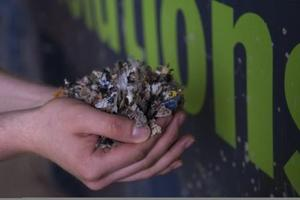Defra set to ease regulation on waste-derived fuel
 Defra has unveiled plans to reduce the “burden of regulation” on waste-derived fuel by increasing the threshold below which facilities burning the material do not require an environmental permit which applies European emissions requirements.
Defra has unveiled plans to reduce the “burden of regulation” on waste-derived fuel by increasing the threshold below which facilities burning the material do not require an environmental permit which applies European emissions requirements.The proposals, which were outlined in a consultation on planned changes to the Environmental Permitting Regulations published last week (July 30), would mean that, from April 2011, fuels manufactured from waste which are deemed as having ceased to be waste would be regulated in the same way as virgin fuels.
Under the current permitting system, facilities with a thermal input of three megawatts (MW) or more must hold a permit applying the requirements of the European Integrated Pollution Prevention and Control Directive, whereas those burning virgin fuel are only regulated in the same way if they have an input of 20MW or more - or in some cases 50MW.
In the consultation, Defra explained: “This means that non-waste fuels can be regulated differently, according to whether or not they were once waste, for no environmental benefit.”
But, it said that developments in case law meant that it was now possible for a waste-derived fuel to be processed so that it was no longer classed as waste before being burned as fuel.
In particular, it referred to draft guidance in its January 2010 consultation on changes to the legal definition of the waste (see letsrecycle.com story), which considered how cases such as the long-running dispute between OSS Group and the Environment Agency over whether the Merseyside company’s ‘clean fuel oil’ had processed sufficiently to no longer be considered a waste (see letsrecycle.com story).
And, as a result, it said it proposed to amend the permitting regulations “so that fuels manufactured from waste which have ceased to be waste which have ceased to be waste before being burned as a fuel are regulated in the same way as non waste-derived fuels”.
Quality protocols
The consultation document proposes that a decision on whether a waste has ceased to be a waste must be taken “on the facts of each case”, but noted that, as well as the general guidance offered in the legal definition of waste consultation, there was further support offered by the quality protocols project.
In particular, the project - which is jointly run by the Environment Agency and the Waste & Resources Action Programme - has developed a protocol for fuel produced from waste lubricating oils (see letsrecycle.com story) and waste wood is among the materials currently being considered by the initiative.
Elsewhere in the consultation document, which applies to England and Wales, the department proposes to remove the Environment Agency’s responsibility for regulating transport movements beyond waste sites and landfills and instead make them the responsibility of local authorities.
It claims that the Agency does “not have the expertise or powers to take action while the vehicles are off the site. These matters are currently addressed by local authorities and highway authorities, who are best placed to deal with these issues”.
Exemptions
There are also proposals to change some of the waste codes and descriptions used to define operations that are currently exempt from the permitting system, as well as changing the scope of some of them.
These proposals range from extending the T11 exemption for the refurbishment or repair of WEEE to include dismantling components for use as spare parts through to changes to the wide-ranging U8 exemption which covers “use of waste for a specified purpose”.
The consultation is open for eight weeks, until September 24 2010.
By Nick Mann
You can return to the main Market News page, or press the Back button on your browser.

